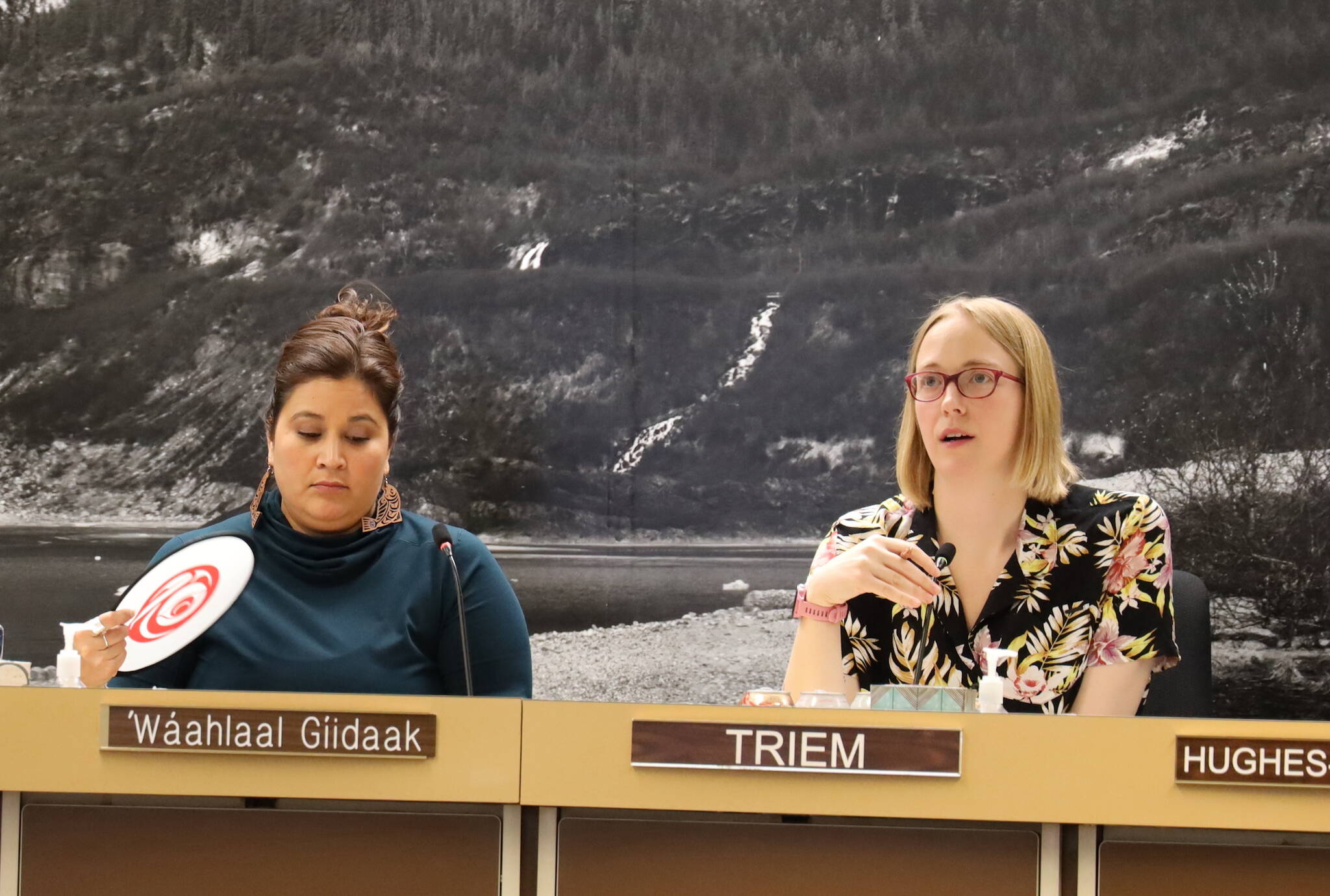The City and Borough of Juneau Assembly narrowly approved funding for a plan that could offer up to six weeks of paid-parental leave to city employees as the city faces “unprecedented recruitment and retention issues.”
The Assembly meeting as the Finance Committee OK’d $170,000 in general funds to be included in the city’s proposed budget for Fiscal Year 2024, and now city administration will begin drafting the policy for the benefits that will then again require Assembly approval before it can be enacted.
The vote at the Wednesday evening was 5-4 with Assembly members Carole Triem, Christine Woll, Wáahlaal Gíidaak Barbara Blake, Alicia Hughes-Skandijs and Mayor Beth Weldon voting in favor.
[City mulls benefits package to address vacancies]
Assembly members Michelle Bonnet Hale, Wade Bryson, Greg Smith and Maria Gladziszewski voted against it.
Once the policy is approved by the Assembly, Juneau will join a list of cities in Alaska, including the Municipality of Anchorage and the City of Soldotna, that in March both implemented benefits of paid parental leave of four and six weeks, respectively.
According to the policy that is being proposed, originally sent to the Assembly by city Human Resources and Risk Management Director Dallas Hargrave on May 1, the city currently has no outlined paid-parental leave policy, and it is not required to have one.
Hargrave’s memo pointed to the benefits of paid-parental leave like helping attract and retain workers, providing equity to working parents and lower-income families and setting a “positive example for other government agencies” in Alaska.
According to Hargrave’s memo, the city estimates around 18 employees would be eligible for the benefit, based on several assumptions and previous data.
From that estimation, the added benefit to employees will cost the city around $410,000 annually when accounting for the estimated cost of leave and cost of backfilling position while on leave. According to the city, around 75% of those costs will come from general funds and the remaining 25% will come from internal service and enterprise departments.
During the discussion Assembly member Smith shared his frustration about only hearing the proposal once yet deciding to move forward with the $170,000 in the budget. Smith said he would have liked more time to ask questions on the decision to fund the benefit before voting.
“In general, I support it, but I’m not thrilled with the process,” he said.
Assembly member Hughes-Skandijs said she feels like the policy is a good idea, and felt comfortable making the decision and said the Assembly should not be “overly worried” about funding the initiative given the difficult labor market right now.
“Aside from the fact that this aligns with my own personal values, I think whatever we can be doing to make ourselves a more attractive employer is a good idea right now,” she said.
Deputy City Manager Robert Barr told the Empire after the meeting that the policy can’t be enacted at least until the budget is passed, expected to be June 12. However, he said it’s likely going to be a few months after that when the policy is ready to be presented to the Assembly for approval.
Barr also said that while the memo introduced by Hargrave suggests six weeks of paid-parental leave, that may be subject to change if it becomes infeasible while attempting to draft the policy.
• Contact reporter Clarise Larson at clarise.larson@juneauempire.com or (651)-528-1807.

